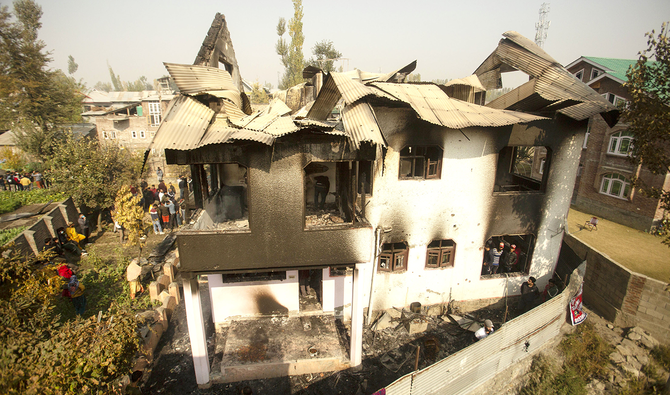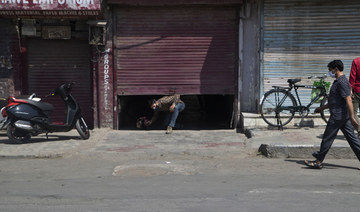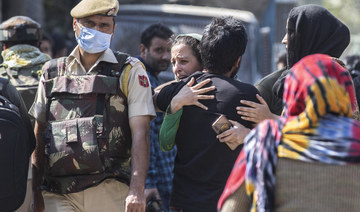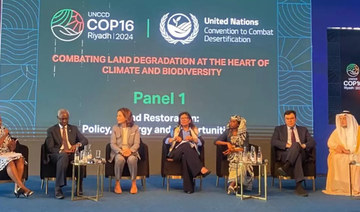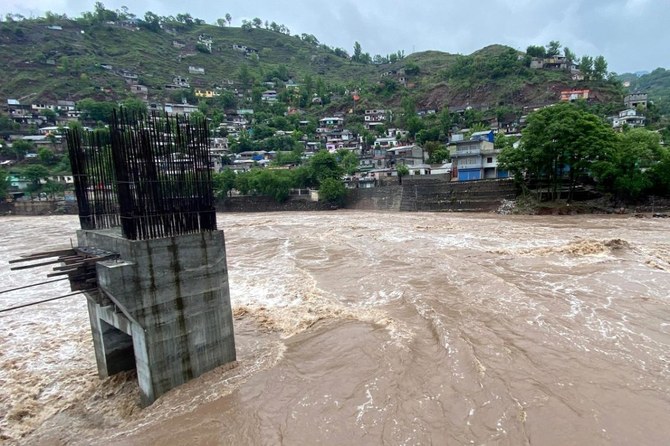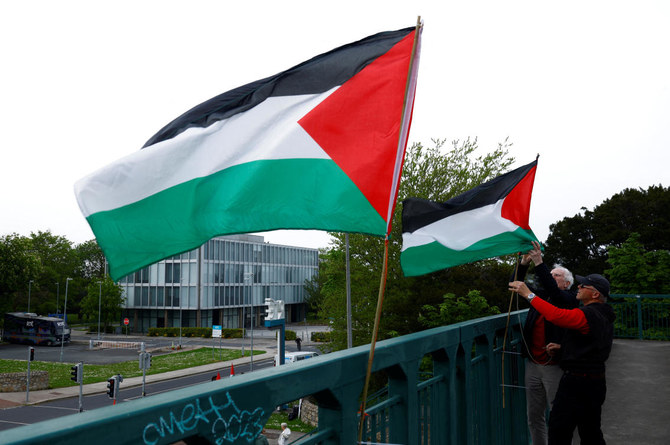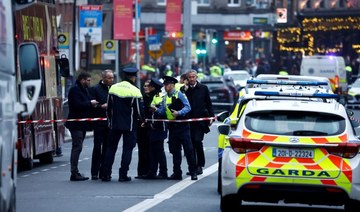NEW DELHI: Jammu and Kashmir residents have voiced concerns over the future of the region after New Delhi pushed through a new controversial change in the region’s land laws.
The move was labeled an “attack” on the Kashmiri identity and an attempt to confiscate land in the disputed territory.
“Unacceptable amendments to the land ownership laws of Jammu and Kashmir. The region is now up for sale and the poorer landowners will suffer,” former Chief Minister of Jammu and Kashmir Omar Abdullah tweeted on Tuesday.
It follows a statement by the Ministry of Home Affairs, which said that the Union Territory (UT) of “Jammu and Kashmir Reorganization (Adaptation of Central Laws) Third Order, 2020 shall come into force with immediate effect, and will encourage development.”
Under the new law, non-Kashmiris can buy land in the territory — a first for the region — for residential, industrial or educational purposes, but not for agricultural use. The move has sparked anxiety among residents in the valley and across Jammu.
“I am speechless,” Srinagar-based lawyer Deeba Ashraf told Arab News.
“Kashmir has been different from other parts of India because we had certain exclusive constitutional rights, but this new land law feels like one more assault on our unique identity,” Ashraf said.
However, federally appointed Lt. Gov. of Jammu and Kashmir, Manoj Sinha, said on Tuesday that the new law will ensure “progress, development and employment” in the region.
“On the areas identified as industrial areas, we want good industries to come up here, like in the rest of the country, so that there is progress, development and employment,” Sinha said.
Tuesday’s announcement comes a year after the Bharatiya Janata Party (BJP) government abrogated the special status of the constitution and nullified Article 370 and 35A of the statute, which gave Kashmiris limited autonomy and protected their domicile and employment rights.
After the repeal of Kashmir’s special status, the state was divided into two territories, Ladakh, and Jammu and Kashmir, with all democratic and political activities suspended for several months.
“These changes in land laws are the natural consequences after the abrogation of the special status of Kashmir and change in the constitution,” Jammu-based advocate Subhash Chander Gupta told Arab News.
He added that the central government is “apprehensive,” and thinks that “unless we do like this we would not be succeeding in
our efforts.”
Gupta said: “New Delhi is not allowing things to happen naturally. It is thrusting upon and creating more anger among the people of Kashmir. I don’t think these new laws are appreciable.”
He added that the change in land law is also creating an “element of fear” among the people of Jammu.
“Earlier, the people of Jammu felt that it is a fight between New Delhi and Srinagar, but now they realize that the promises made by New Delhi are not coming true. Ultimately, if the land has to go, the land of the non-Muslim area will also go,” Gupta warned.
The move was met with a strong reaction from several political quarters in Kashmir, with some terming the latest change as “unacceptable.”
Mehbooba Mufti, former chief minister of Kashmir before it transitioned into two federally administered units, labeled the decision “nefarious.”
Mufti tweeted: “Another step that’s part of the government’s nefarious designs to disempower and disenfranchise the people of Jammu and Kashmir.”
Meanwhile, a displaced Kashmiri Pandit from the valley’s Hindu community, who migrated to another part of the country when the security situation worsened in the 1990s, told Arab News that he felt “betrayed” by the new land law.
“I feel betrayed. The government wants to snatch our land to give to outsiders and leave people like us in limbo. This is inconceivable,” New Delhi-based Satish Mahaldar, said.
However, the BJP said the decision was “welcome change” that would strengthen the unity of the country.
“Not only would there be investors coming to the region, but also a strengthening of the unity and integrity of the nation,” Jammu-based BJP leader and former deputy chief minister Kavindra Gupta told Arab News.
He added that “the leaders in the valley who are opposing the move speak the language of Pakistan and China.”
But political experts have said the new laws will “mean nothing” if the Kashmir dispute is left ignored.
The region is divided between India and Pakistan, who have fought two conflicts over the disputed territory.
“The dispute involves India, China and Pakistan. We have to rise above, see the reason, address the dispute, find a way out and ensure stability in the region, rather than make laws which mean nothing as far as the dispute is concerned,” Prof. Abdul Gani Bhat, former leader of the All Parties Hurriyat Conference, told Arab News.
He added that there was an immediate need to preserve “a sense of history.”
Bhat said: “Kashmir is a dispute which needs a solution in the interests of international stability. Unless you do that you will not serve your own country and your own interests.”
Srinagar-based political analyst Gowhar Geelani compared the situation in the valley to the conditions Gaza residents face.
“People in Kashmir are already feeling what the people in Gaza feel: No resources, choking of resources, tightening of opinion, barricading at every stage and securitization. Once we go out of home even for a short drive, we have to cross multiple checkpoints and it feels like you are in a prison,” he told Arab News.



